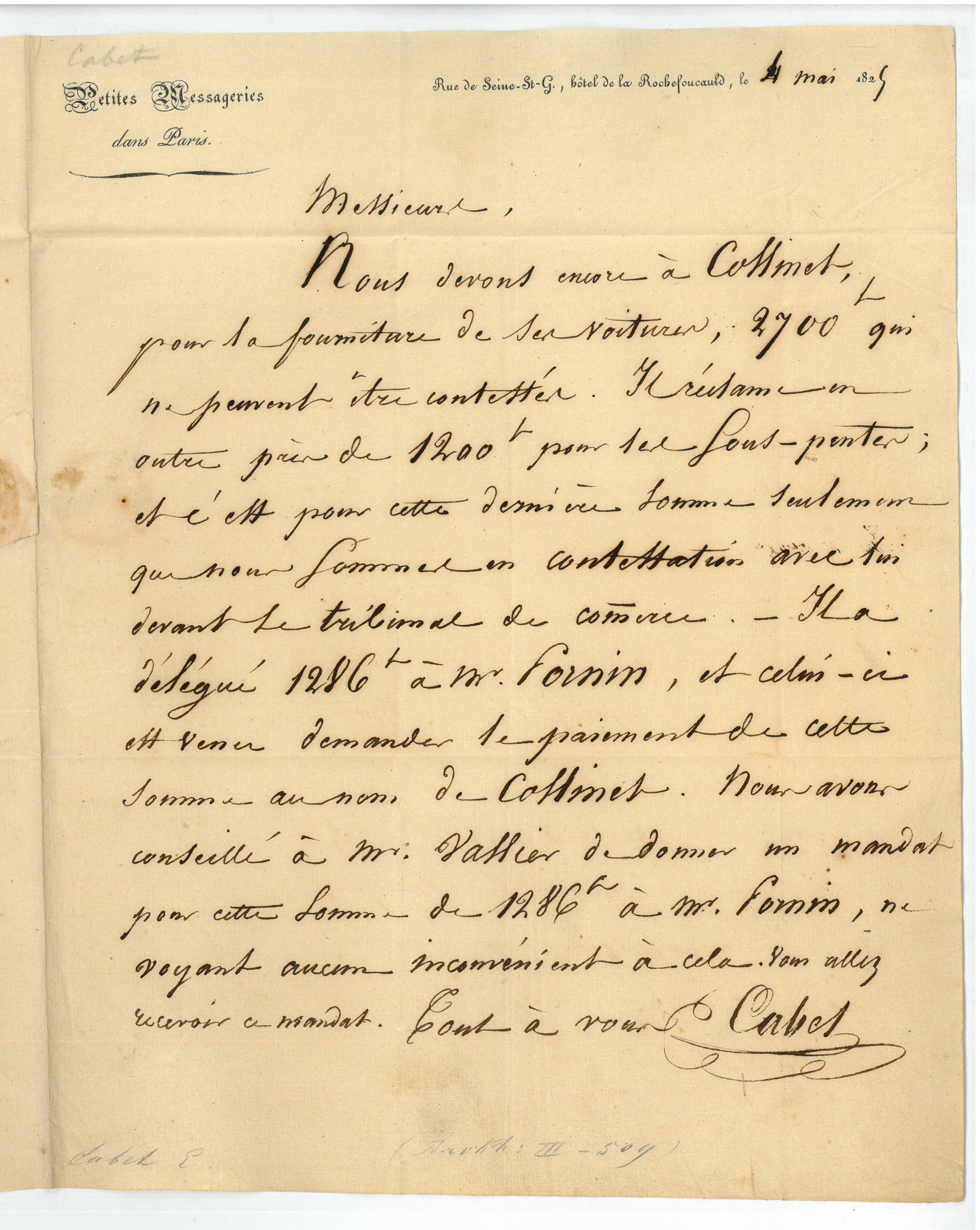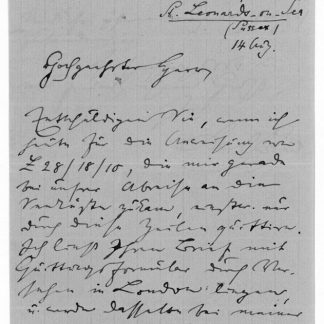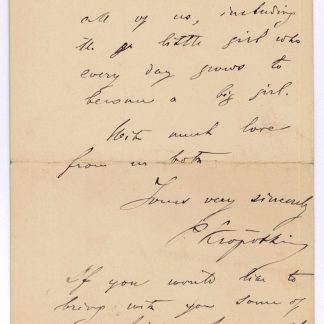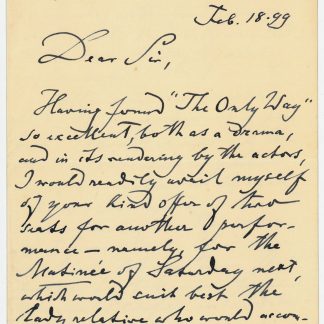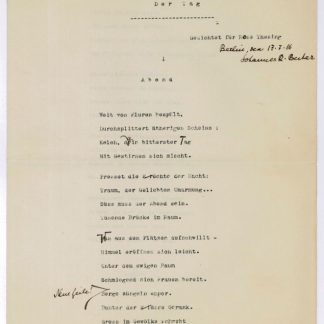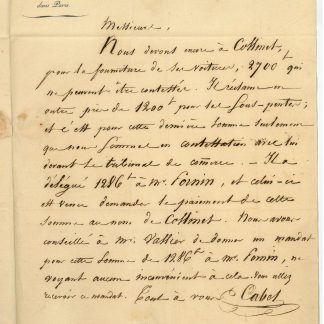Autograph letter signed (?).
4to. 1 page on bifolium with integral address panel.
€ 800.00
To Monsieur Luce and other unnamed addressees about 2700 f which Cabet and other gentlemen owe to Cossinet for the supply of his carriages. Furthermore, Cossinet demands another 1200 f for those "sous-pentes" (with slanting roofs). Only the latter sum can be contested before the commercial court. Cossinet delegated 1286 f to M. Fornin, who came to ask for the payment of this sum in the name of Cossinet. Cabinet and other gentlemen advised M. Vallier to give a mandate for the 1286 f to M. Fornin, as they do not see any disadvantage in doing so, and announce that the addressees will receive this mandate: "Messieurs, Nous devons encore à Cossinet, pour la fourniture de ses voitures, 2700 f qui ne peuvent être contestés. Il réclame un outre près de 1200 f pour tel sous-pentes; et c'est pour cette dernière sommes seulement que nous sommes en contestation avec lui devant le tribunal de commerce. Il a délégué 1286 f à M. Fornin, et celui-ci est venu demander le paiement de cette somme au nom de Cossinet. Nous avons conseillé à M. Vallier de donner un mandat pour cette somme de 1286 f à M. Fornin, ne voyant aucun inconvénient à cela. Vous allez recevoir ce mandat [...]".
Cabet went to Paris in 1820, as he was legally banned for a year from practicing law in his home town. In Paris, Cabet united with other ideologues of the resistance to monarchy and theocracy, such as the followers of Saint-Simon's New Christianity and Babeuf's Society of Equals. In 1840 Cabet published the novel "Voyage en Icarie" which represented his theories of the ideal community. For the realisation of his ideas, Cabet and several hundred followers landed in New Orleans in 1848/49. Cabet purchased the old Mormon settlement at Nauvoo and launched his so-called "Icaria".
With lithographed letterhead "Petites Messageries dans Paris." and "Rue de Seine-St-G., hôtel de la Rochefoucould". Tear due to opening of the letter.

